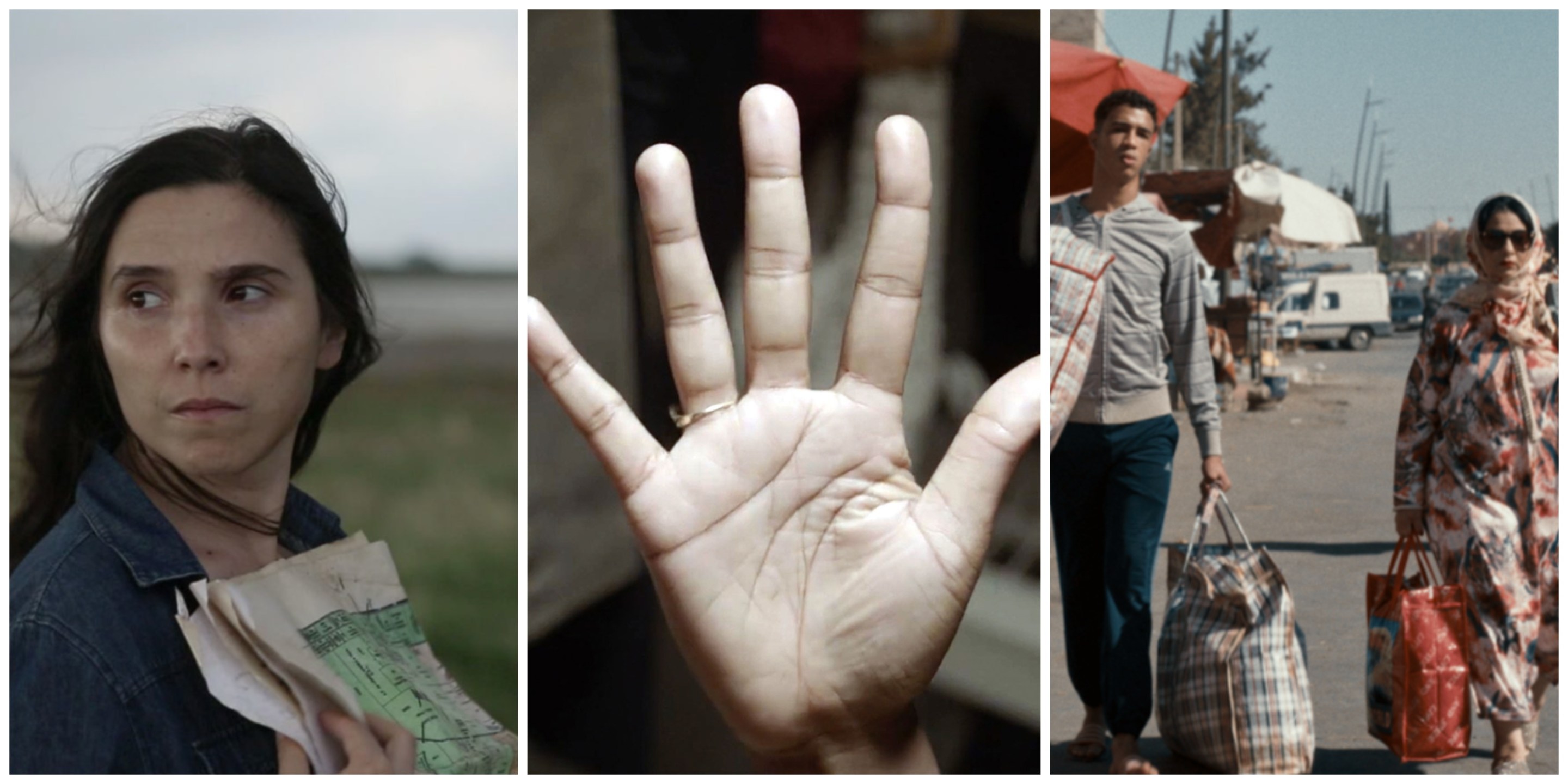And that is that. The 42nd Annual Minneapolis-St. Paul International Film Festival ended yesterday, and now it’s time for one last look back. I saw fewer films in the second week than I did in the first (down from 13 to nine) but I still had plenty to chew on. And while only one of these will be showing as part of MSPIFF’s Best of Fest this week, there’s always streaming.
Trenque Lauquen
“Oh no, is this asshole really gonna tell us that the four-hour movie from Argentina was the best thing he saw this year?” Haha, yes I am, deal with it, suckers. After a young botanist (Laura Parades) disappears in the titular Argentine town, her two lovers begin a search, both suspecting different causes based on their own personal assumptions about her. Writer/director Laura Citarella toys with genres and expectations (her use of music to signal a change in tone is ingenious and sometimes hilarious), and she weaves a series of interconnected mysteries into a tale that’s by turns playful and meditative, less concerned with solving her riddles than with ways we explain away the mysterious. GRADE: A
The Tuba Thieves
I was pumped for Alison O'Daniel’s experimental doc, didn’t know quite what to expect, and wasn’t disappointed by its unique mix of documentary and fiction. Riffing off a real-life event—in the early ’10s, an unexplained rash of tuba thefts hit L.A. schools— the film explores tangents (the flight paths over L.A., the popularity of narcocorridos, and even a performance of John Cage’s 4’33) while.following the everyday lives of a set of deaf characters. What makes the film are O'Daniel’s formal choices, including genuinely entertaining subtitles and a clever mix of spoken dialogue and sign language, The people behind me made their own point about the nature of sound by gabbing through the silent credits. GRADE: A-
The Damned Don’t Cry
Director Fyzal Boulifa transplants the 1950 Joan Crawford noir of the same name to Morocco, where a free-spirited woman (Aïcha Tebbae) and her teen son (Abdellah El Hajjouji) try to make a new start in Tangier. Here, both find possible ways out of their previous nomadic life—she plans to marry a devout bus driver looking for someone to raise his children, he’s hired for hotel work by a gay Frenchman whose interests aren’t solely professional. The soul of an old school melodrama mixes with the grit of a modern European social drama. Showing at 2 this afternoon (Friday) as part of the Best of Fest; find more info here. GRADE: A-
Love Life
A genuinely uncomfortable family drama from Japanese director Kōji Fukada that’s subtle at times and at others far from it. Taeko (Fumino Kimura) and Jirō (Kento Nagayama) are a married couple with a cute, Othello-obsessed son. But their relationship is more strained than it appears, especially since Jirō’s parents look down on Taeko because this is her second marriage. Following a death in the family, the fissures between husband and wife widen, and both reconnect with former lovers; Taeko tries to help Park, the father of her son, while Jirō learns unpleasant truths about himself from a co-worker he almost married. GRADE: B+
R.M.N.
The latest from Romanian director Cristian Mungiu is only intermittently successful as a study of xenophobia and racism in a small Transylvania town—essentially what he has to say about it is that it exists and it’s dumb. True, yes, but Mungiu only skims the surface of how race and ethnicity collide with the economic realities of modern Europe, where residents are driven to other countries to find work while people from even poorer countries come there for jobs. Mungiu more effectively tells the story of Matthias (Marin Grigore), who loses a job in Germany after slugging a foreman who calls him a gypsy, and returns home to find that his eight-year-old son (Mark Blenyesi) has stopped speaking. He rekindles a romance with Csilla (Judith State) who runs a bakery in town that gets caught up in controversy when it hires Sri Lankan workers, and her commitment to others shows up his blinkered masculinity. GRADE: B+
The Accident
While biking to work, Joana (Carol Martins) is cut off by a car. She decides to confront the driver (Gabriela Greco), who responds by simply accelerating, forcing Joana to cling to the hood for several terrifying minutes. When the driver’s son (Luis Felipe Xavier) sets his smartphone footage of the incident to some brutal metal and posts it on YouTube, it goes viral; soon Joana is drawn into the messy personal lives of the driver’s family, which provides a distraction from her own problems. It’s sometimes hard to tell what’s ambiguous in Bruno Carboni’s film and what’s not clearly thought through, but Martins’s performance holds it together. GRADE: B+
L'immensità
Luana Giuliani is excellent as a well-off trans boy in ’70s Rome who’s raised as a girl but gets to inhabit his true gender during a short summer romance with a working class girl. Penelope Cruz is perhaps almost too scene-stealing as his super-hot, wonderfully dressed, free-spirited mom—director Emanuele Crialese may adore Cruz even more than Almodóvar does, which is saying something. Told together, their experiences how Italian society enforced gender roles 50 years ago, yet despite these performances, and some wonderful moments, L'immensità tries to cover too much ground and spreads itself thin. Somehow it’s both too dramatic and too evanescent. GRADE: B
The Angry Black GIrl and Her Monster
Brainy Vicaria (Laya DeLeon Hayes) looks around her violent, drug-ridden neighborhood and concludes, “Death is a disease.” To “cure” it, she zaps her murdered brother back to life. And guess what? Things don’t turn out as planned! I saw this with a fun late-night crowd, where the jump scares, gore, and overall creepiness worked as it was meant to. But writer/director Bomani J. Story wants it both ways—to craft a neo-Frankenstein shocker and make a statement on the pain in Black communities— and, as with too much horror these days, he’s so worried that we’ll miss the point he often topples into the obvious. GRADE: B
The Beasts
Just as there are “Oscar movies,” which seem to exist primarily as award-generators, there are “film festival movies,” which seem to exist solely to be seen and even enjoyed in settings like this. They never sink below a certain level of quality. The acting is engaging, the scenario is promising, the first two-thirds or so are usually taut and compelling. That’s the case with this drama about a French couple farming in a small Spanish town who run afoul of its inhabitants. Until it lost its bearings in the final act, The Beasts was entertaining enough. I will probably never think about it ever again. GRADE: B-






